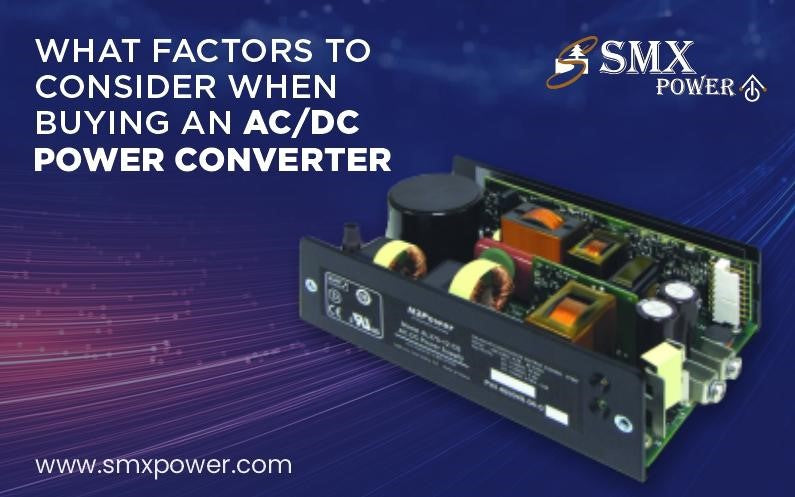In today's digital world everybody encounters power conversion scenarios. AC/DC power converters are vital power converters because they are applied for charging electronic devices, powering industrial machines and making renewable energy systems work. This is not simple as the market has many different products to offer. In order to buy the right AC/DC power converter, you have to take into account several factors.
Factors to consider when buying an AC/DC power converter
Application specifics:
First, identify what type of AC/DC power adapter you actually need by doing this. Converters with diversity in voltage, current, and power will be implemented in different tasks. Compatibility and optimal performance will be realised by analysis of the behaviour of load and operation situation.
Voltage and current requirements:
Voltage and current demand are among the major factors to be taken into account while buying an AC-DC converter. The converter can only output the voltage that is equivalent to the load voltage to function appropriately. Furthermore, the amount of power that the load needs is another point to address to stop the converter from overheating.
Efficiency and power factor:
One of the essential parameters to measure the efficiency and power coefficient of a power converter is efficiency and power factor. The higher efficiency converters can be the reason for minimum loss of energy, this way the cost reduction and environmental impact can be avoided.
High power factor reflects that the electricity is used wisely and the system is compliant with the regulations. The efficiency and power factor scores of converters assist you in choosing one that doesn't require much power consumption.
Size and form factor:
The dimensions of the power supply converter, which is especially important if space is limited, are the most important. Maintaining low weight and high energy density of compact devices makes small converters more suitable. Such concepts are also modular and scalable, that is, they can be seamlessly interfaced with current systems or vice versa accommodated.
Temperature and environmental considerations:
Things such as temperature, humidity, and shaking in the environment play a big role in the converter’s performance and the lifespan of the device. To keep them working properly over a large temperature range, converters must be designed with the appropriate thermal control capability. The use of conformal coating and ruggedized enclosures will protect the device from dust, water, and mechanical stress, therefore, it can be used in harsh conditions.
Reliability and durability:
People must buy power converters from well-trusted brands that have proven their reliability and robustness. The product's reliability can be calculated by the average interval between failures (MTBF), the warranty length and the availability of customer care.
Input power requirements:
Understanding the source of the input power is a factor to consider while selecting an appropriate AC/DC power adapter. It is crucial to match the converter's input voltage and frequency with the power output, which might be AC mains power or DC power like batteries or solar panels. In addition to this, certain adapters will take various voltages or will have the ability to work with more than one input source.
Cost and total ownership expenses:
Though, the price is central, how you will spend for the object during its life is another issue. Those factors like electricity consumption, reliability, maintenance needed and warranty covers determine the total cost of owning. For people who choose high-quality converters at first may save cost in the long run by making them more efficient and decreasing down time.

